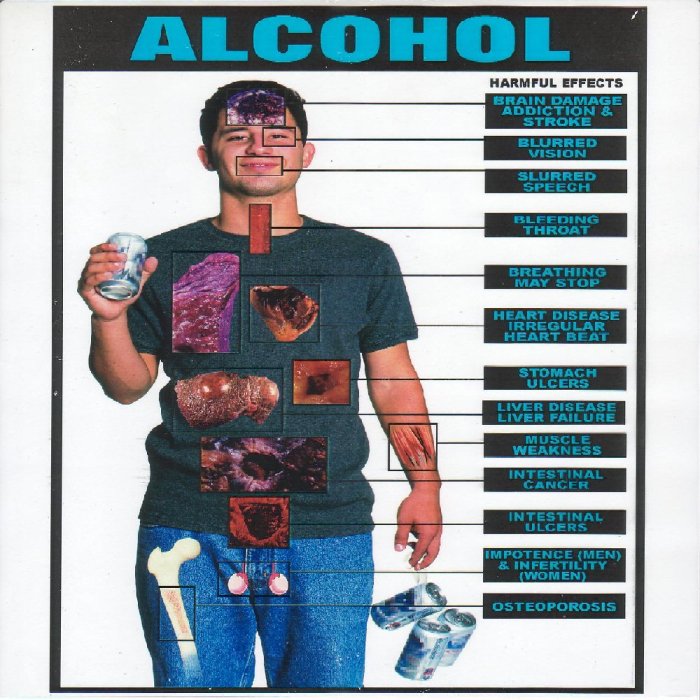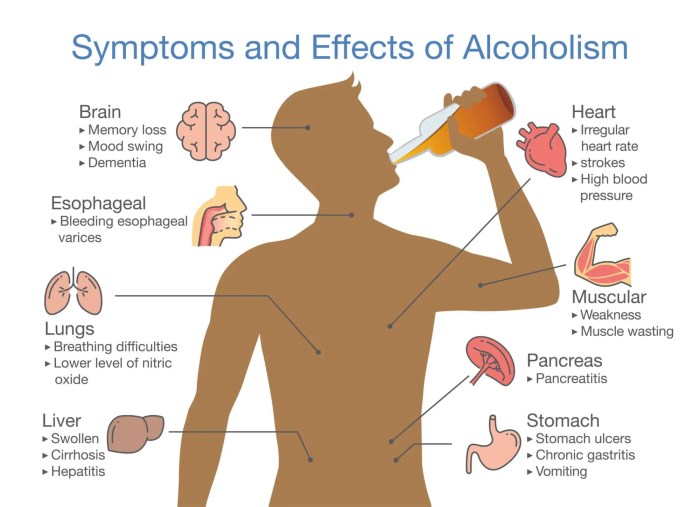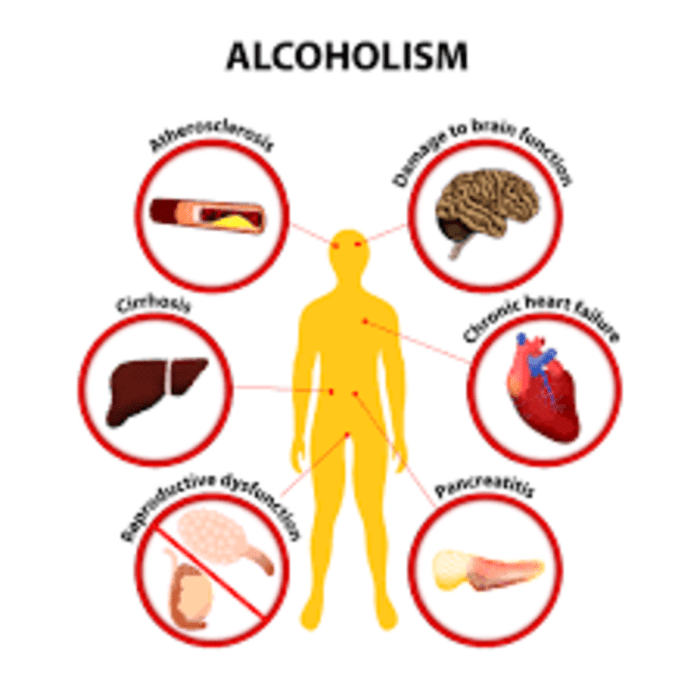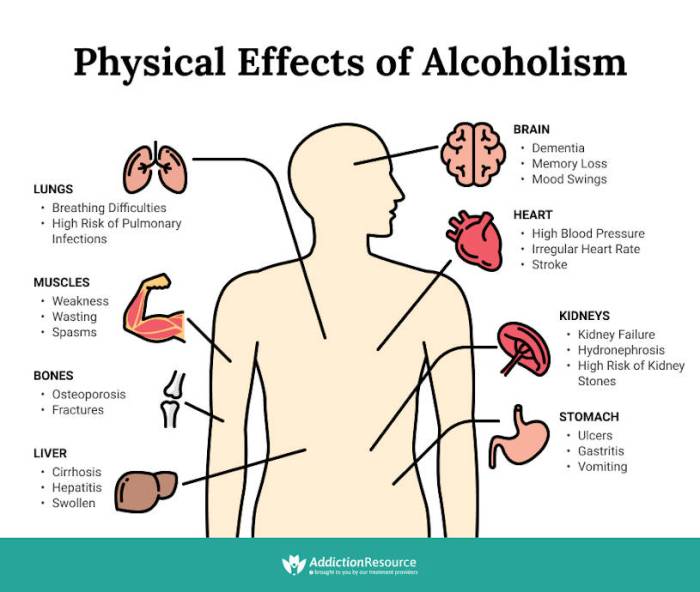The effects of alcohol are________. – The effects of alcohol are multifaceted, encompassing a wide range of physiological, behavioral, and health-related consequences. From its impact on cognitive function to its role in chronic diseases, alcohol consumption presents a complex interplay of factors that warrants careful examination.
This comprehensive guide delves into the physiological effects of alcohol, including its influence on the nervous, cardiovascular, and digestive systems. It also explores the behavioral effects, such as mood changes, impaired judgment, and social disinhibition. The health consequences of alcohol consumption are discussed, highlighting the risks of liver disease, cancer, and reproductive health issues.
Physiological Effects

Alcohol has profound effects on the human body, impacting various physiological systems. It primarily affects the nervous system, cardiovascular system, and digestive system.
Effects on the Nervous System
Alcohol acts as a depressant on the central nervous system, impairing cognitive function, motor skills, and reaction time. It inhibits the activity of neurotransmitters, leading to reduced alertness, impaired judgment, and decreased coordination.
Effects on the Cardiovascular System
Alcohol can increase heart rate and blood pressure, and it can interfere with blood clotting mechanisms. Excessive alcohol consumption can lead to heart disease, stroke, and hypertension.
Effects on the Digestive System
Alcohol can irritate the lining of the stomach, leading to nausea, vomiting, and ulcers. It can also interfere with the absorption of nutrients, contributing to malnutrition.
Behavioral Effects

Alcohol has a significant impact on behavior, influencing mood, judgment, and social interactions.
Psychological Effects, The effects of alcohol are________.
Alcohol can induce mood changes, ranging from euphoria to depression. It can impair judgment and decision-making, increasing the likelihood of risky behaviors.
Social Behavior
Alcohol can increase sociability and decrease inhibitions, leading to more talkative and uninhibited behavior. However, excessive alcohol consumption can also lead to aggression and conflict.
Sleep Patterns
Alcohol can disrupt sleep patterns, causing insomnia and fragmented sleep. It can interfere with the body’s natural sleep-wake cycle, leading to daytime fatigue and impaired cognitive function.
Health Consequences

Chronic alcohol consumption can have severe consequences for overall health and well-being.
Liver Disease
Excessive alcohol consumption can lead to alcohol-related liver disease, including cirrhosis and liver failure. These conditions can be life-threatening and require medical intervention.
Cancer Risk
Alcohol consumption has been linked to an increased risk of certain types of cancer, including breast cancer, liver cancer, and colon cancer.
Reproductive Health
Alcohol can impair reproductive health, leading to infertility and fetal alcohol syndrome. Fetal alcohol syndrome is a group of birth defects that can occur when a woman consumes alcohol during pregnancy.
Long-Term Effects

Long-term alcohol abuse can have devastating effects on physical and mental health.
Cognitive Impairment
Chronic alcohol abuse can lead to cognitive impairment, memory loss, and dementia. It can damage brain cells and disrupt neural connections, affecting learning, memory, and problem-solving abilities.
Mental Health
Alcohol abuse can contribute to mental health problems, such as depression, anxiety, and psychosis. It can worsen existing mental health conditions and make them more difficult to manage.
Social Relationships
Alcohol abuse can damage social relationships, leading to conflict, isolation, and loss of support. It can affect relationships with family, friends, and colleagues.
Key Questions Answered: The Effects Of Alcohol Are________.
What are the short-term effects of alcohol consumption?
Short-term effects of alcohol include impaired coordination, slurred speech, and decreased reaction time.
What are the long-term effects of excessive alcohol consumption?
Long-term effects of excessive alcohol consumption include liver damage, heart disease, and increased risk of certain types of cancer.
Can alcohol consumption be beneficial to health?
Moderate alcohol consumption has been associated with a reduced risk of cardiovascular disease in some studies, but excessive consumption negates any potential benefits.